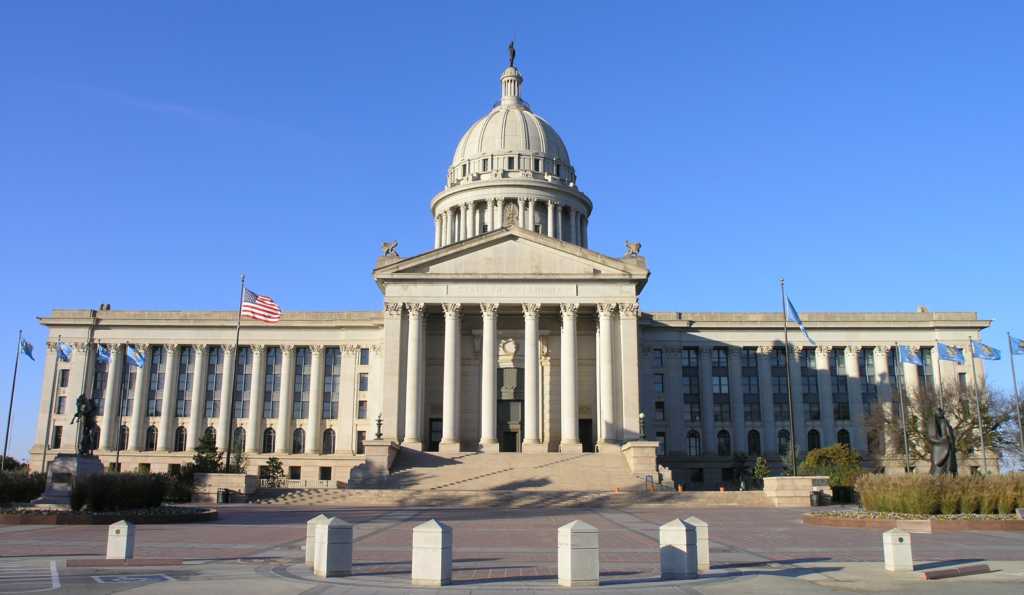An Oklahoma House panel has made moves to advance a bill laying out provisions to protect the religious convictions of foster and adoption agencies. The new bill would endow agencies with the power to decline to place children in certain households if the arrangement was to violate their fundamental religious beliefs.
Christian Couple Lose Foster Children for Refusing to Lie About the Easter Bunny
An excerpt of SB 1140 reads as follows:
“To the extent allowed by federal law, no private child-placing agency receiving neither federal nor state funds shall be required to perform, assist, counsel, recommend, consent to, refer, or participate in any placement of a child for foster care or adoption when the proposed placement would violate the agency’s written religious or moral convictions or policies.”
Senate Majority Floor Leader Greg Treat, R-Oklahoma City, and Rep. Travis Dunlap, R-Bartlesville presented the bill, which has already been passed by the Senate with a vote of 35-9. It will now head to the Oklahoma House of Representatives’ floor. Faith groups welcomed the new legislation.
“As Oklahoma Baptists, we want to voice our strong support of Senate Bill 1140, which we believe is necessary to protect the religious liberty of faith-based adoption providers in Oklahoma,” Executive Director Hance Dilbeck of The Baptist General Convention of Oklahoma told the Tulsa Beacon.
“Faith-based organizations have been on the leading edge of providing hope and good homes for children in need of adoption or foster care.”
The Convention penned a letter to lawmakers to assert their position. “We have been alarmed and outraged to learn of threats to the religious liberty and moral convictions of faith-based agencies in other parts of the country, such as Massachusetts,” they wrote. “In Oklahoma, now is the time to ensure equal opportunity and protection for individuals and groups involved in foster care and adoption. Indeed the very survival and future of such organizations depends upon it.”
“Southern Baptists in Oklahoma have a long history of involvement in adoption and caring for children in need of homes,” they added.
Gay rights groups slapped down the bill, arguing that it discriminates against homosexual parents, preventing them from fostering and adopting based solely on their sexual orientation.
“Essentially, if this bill passes, adoption agencies could decide whether or not to adopt out, or foster out, to LGBT people, to single people, to members of minority faiths. This is a bill that hurts children and discriminates along the way,” said Allie Shinn of the American Civil Liberties Union (ACLU) of Oklahoma, according to Oklahoma’s News 4.
“You absolutely have the right to your own deeply held religious beliefs. You do not have the right to use your deeply held religious beliefs as a weapon to discriminate, and that’s exactly what Senate bill 1140 would do.”
Treat and Dunlap have responded to this criticism by highlighting the existence of many other fostering and adoption agencies that LGBT couples are free to choose from. The new legislation, they state, simply protects the integrity of faith-based organizations and allows them to operate in accordance with their faith-centered mission statements.
“This doesn’t eliminate anyone that can currently participate. All it does is it opens it up for others to participate and protects those that may have a faith-based group to continue to participate,” Treat stated.
Human rights advocacy organization Human Rights Watch penned a letter to the Oklahoma Senate expressing its concerns about SB 1140, which it labeled, “a bill that would prohibit the state from withholding funding, licenses, and other support to child welfare agencies that discriminate based on their religious beliefs.”
“SB 1140 depart from the traditional notion of religious exemptions and do not represent good-faith efforts to balance LGBT equality and religious freedom,” argued the Director of HRW’s LGBT Rights Program. “SB 1140 fails to strike a proper balance between the freedom of religion and the rights of children and prospective parents.”



